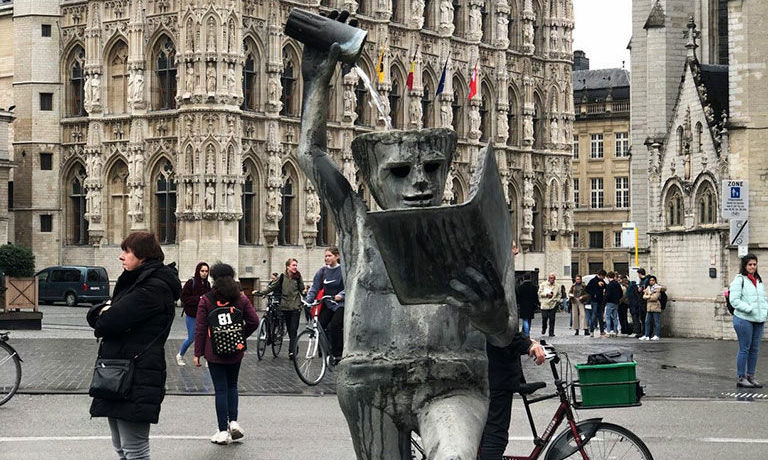- About us
About us
- News
- Projects
- Calendar
- Contributors
Contributors
- Blog
- Digital Inovation Hub
- Living Lab
- Contact

The RegionArts project aims to improve the competitiveness of SMEs through the coordination of innovative, social and inventive propensities in production processes, ie to enhance the economic importance of creative processes as an impetus for progress, especially when these processes create mutual momentum with technologies.
Thinking about it, SERN facilitated the fifth experience exchange (EoE) in Brussels from 05 to 07 November 2019, entitled 'Overview of existing support and practice programs in partner regions'. It has identified relevant meetings that have previously taken place at the regional level and which develop hybrids between the ART and ICT fields and are based on productive associations of experts and technologists. Workshops / study visits were mostly dedicated to organizations such as ERRIN and Flanders DC, which help and connect various actors in the creative industry.
Improving the competitiveness and innovation of SMEs is a priority of the public enterprise support program. To this end, public authorities implement different measures (vouchers, mentoring, rewards). Nevertheless, the further development of hybrids between the two areas, and in particular the improvement of their compounds, is neither clear nor simple. Therefore, the main purpose of this inter-regional meeting was to examine existing support / initiative programs for ARTS and ICT. SERN, together with the RegionArts partnership, has selected the most suitable, among them the Bureau of the European Design Association (BEDA), the STARTS ecosystem, the Creative Europe MEDIA Desk Flanders, the Regional Initiative for Culture and Creativity (RICC), the Artistic Partner, the Screen.brussels Cluster and Guarantees for the cultural and creative sector (CCS GF) from the European Investment Fund.
The second day of EoE began at ERRIN, where Agnieszka Wieczorek presented ERRIN's mission and Anna Spechtenhauser (Stuttgart region) introduced the Design and Creativity task force. The aim of this working group is to raise awareness of the potential of design in European and regional policies, to develop links with other existing design-related networks, and to facilitate the development of projects within these areas. From there, the partners moved to Leuven to meet with Pascal Cools (CEO) and Carl Vuijlsteke (Senior Knowledge and Advice Project Manager) from FLANDERS DC.
The Flanders District of Creativity is the only contact point for entrepreneurs in the creative industries in Flanders, who actively informs, teaches, promotes and inspires creative entrepreneurs who want to build or expand their businesses. The last day of the visit took place at the Permanent Mission of the Regione Molise in Brussels. The Neo-Gothic style house has opened its doors to accommodate a partnership between RegionArts and the European Commission. The EC, represented by Ms Barbara Stacher (DG EAC), Ms Ingrid Rones and Mr Ivan Brincat (DG Connect, Audiovisual and Media Support Programs, Creative Europe MEDIA) in an open dialogue revealed the EU's Work Plan for Culture 2019-22. different CCS financing options, new funding program (from 2021 onwards).
This day is a whole, apart from presenting several successful cases already conducted in Europe provided valuable insights and information for partner regions aimed at enhancing co-operation between the various European Commission's general affairs departments.
The RegionArts project (Enhancing SME growth through the integration of Artists in ICT projects) was funded through the INTERREG EUROPE program. The project involves 8 partners from 7 countries, and the project value is € 1,635,670.00.
